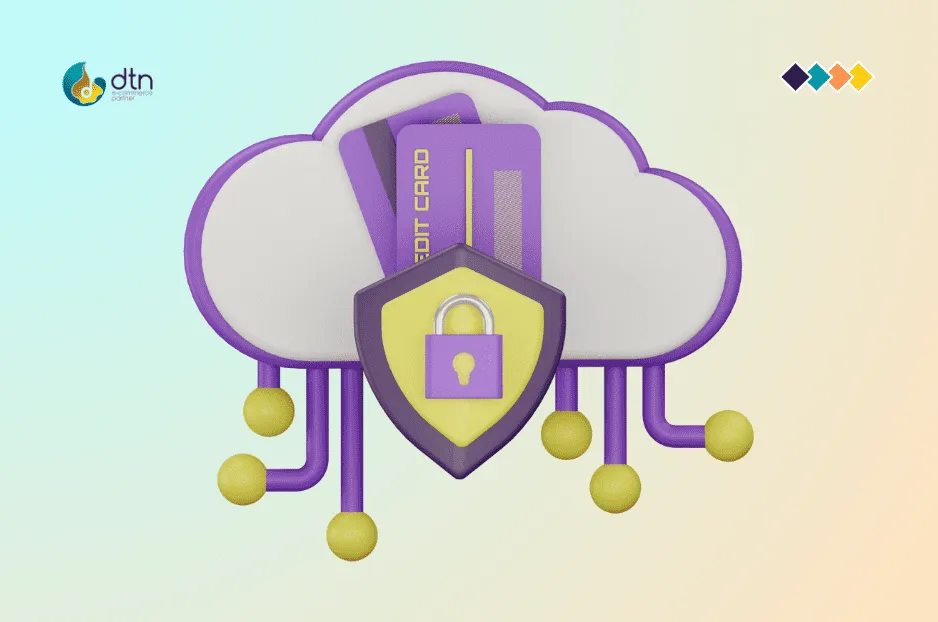E-commerce has evolved into a pivotal component of the global economy, with businesses, regardless of size, striving to establish a robust online presence to tap into a broader customer base. In this fiercely competitive landscape, the key to success lies in implementing effective e-commerce solutions that cater to the needs of both businesses and consumers.
This blog post will delve into the essential components that constitute an effective e-commerce solution, spanning from user-friendly design to secure payment gateways, streamlined order fulfillment, excellent customer support, and the use of data analytics and reporting tools.
Table of Contents
1. User-Friendly Design
The first impression is often the lasting one, especially in the world of e-commerce. An intuitive and user-friendly design is crucial for attracting and retaining customers. It involves making your website easy to navigate, visually appealing, and optimized for different devices, including desktops, tablets, and smartphones.
- Clear and Concise Product Pages: Product pages should provide comprehensive information for customers to make informed decisions. This includes detailed product descriptions, high-quality images, and customer reviews.
- Intuitive Navigation: Ensure that your website’s navigation is straightforward, allowing customers to find products easily without getting lost in a maze of menus and subcategories.
- Mobile Responsiveness: Given the surge in mobile usage, having a mobile-responsive website is indispensable for providing a seamless shopping experience across various devices.

By prioritizing user-friendly design, you create an environment that encourages exploration and transactions, setting the stage for a positive shopping experience
2. Secure Payment Gateways
Security is a paramount concern for online shoppers. Customers must have confidence that their personal and financial details are secure when conducting transactions. Implementing secure payment gateways is fundamental to building and maintaining this trust.
- SSL Certificates: Secure Sockets Layer (SSL) certificates encrypt data transmitted between a customer’s browser and your website, ensuring that sensitive information remains private.
- PCI Compliance: Adhering to Payment Card Industry (PCI) compliance standards is crucial to protect cardholder data during transactions.
- Fraud Detection: Incorporate mechanisms for fraud detection, including address verification, credit card verification, and IP address tracking, to identify and prevent fraudulent transactions.

By ensuring secure payment processes, you instill confidence in customers, contributing to a positive overall shopping experience
3. Efficient Order Fulfillment
Once an order is placed, the subsequent steps of order fulfillment become critical for customer satisfaction and maintaining a positive reputation.
- Inventory Management: Keep a vigilant eye on inventory levels to prevent overselling and ensure timely order delivery.
- Shipping Options: Offer a variety of shipping options, including standard, expedited, and international shipping, to cater to different customer needs.
- Order Tracking: Provide customers with real-time order tracking capabilities, promoting transparency and trust regarding the status of their purchases.

Efficient order fulfillment not only satisfies customers but also contributes to the positive perception of your brand
4. Customer Support
Exceptional customer support is indispensable for resolving issues, answering queries, and ensuring an overall positive shopping experience.
- Multiple Contact Channels: Offer various channels for customers to reach your support team, such as email, phone, and live chat.
- Responsive and Knowledgeable Support: Ensure that your support team is not only responsive but also well-versed in your products and services. Customers should be able to get the help they need quickly and effortlessly.
- Self-Service Options: Implement self-service options like FAQs, knowledge bases, and chatbots to empower customers to find answers to common questions independently.

By delivering excellent customer support, you build a reputation for reliability and responsiveness
5. Data Analytics and Reporting
In the dynamic world of e-commerce, data analytics and reporting tools provide valuable insights into customer behavior, sales trends, and the performance of marketing strategies. Leveraging this information is crucial for informed decision-making and optimizing various aspects of your business.
- Customer Analytics: Track customer behavior, such as purchase history, browsing patterns, and abandoned carts, to understand preferences and identify opportunities for improvement.
- Sales Analytics: Analyze sales data to identify top-selling products, seasonal trends, and customer demographics. This information can guide decisions about product offerings and marketing campaigns.
- Marketing Analytics: Measure the effectiveness of marketing efforts by tracking metrics such as website traffic, conversion rates, and customer acquisition costs. This data is instrumental in fine-tuning marketing strategies for maximum return on investment.

By utilizing data analytics, you gain a competitive edge by staying attuned to market trends and customer preferences
Conclusion
In summary, an effective e-commerce solution serves as the backbone of a thriving online business. By focusing on user-friendly design, secure payment processes, efficient order fulfillment, excellent customer support, and data analytics, businesses can create a seamless and enjoyable shopping experience. This not only leads to increased sales and customer satisfaction but also fosters a loyal customer base that propels the business forward.
Frequently Asked Questions
We’ve compiled a list of answers to common questions on Effective E-commerce Solutions.
Why is a user-friendly interface vital for e-commerce success?
A user-friendly interface is critical because it forms visitors’ first impressions, impacting engagement and retention. It includes intuitive navigation and responsive design, enhancing the overall user experience and encouraging exploration and transactions.
How does mobile optimization contribute to reaching a broader audience?
Mobile optimization ensures accessibility on various devices, especially smartphones, tapping into a larger audience who prefer mobile shopping.
What role do seamless payment processes play in building trust with customers?
Seamless payment processes provide a secure and hassle-free transaction experience, building trust. Offering varied payment options enhances convenience and contributes to a positive shopping experience.
Why is strategic SEO integration crucial for e-commerce platforms?
Strategic SEO integration is essential for improving the visibility of your online store in search engine results. Optimizing product pages, meta tags, and other elements enhances organic traffic, making your e-commerce platform more discoverable and competitive in the digital marketplace.



